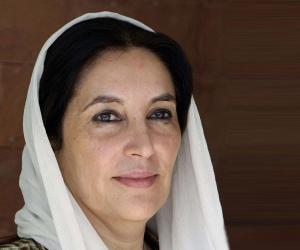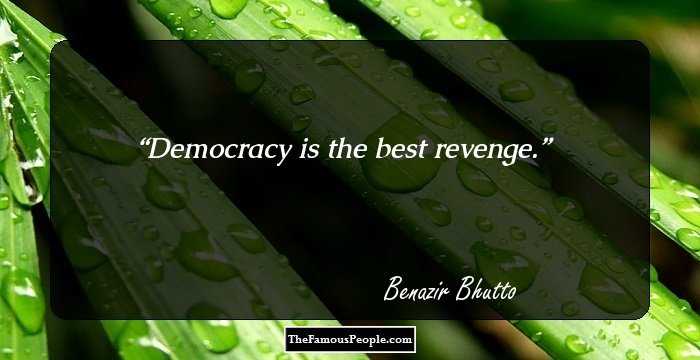
Democracy is the best revenge.
As a woman leader, I thought I brought a different kind of leadership. I was interested in women's issues, in bringing down the population growth rate... as a woman, I entered politics with an additional dimension - that of a mother.
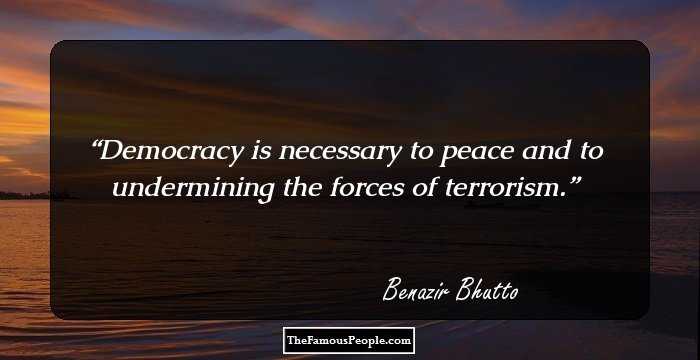
Democracy is necessary to peace and to undermining the forces of terrorism.
Pakistan's future viability, stability and security lie in empowering its people and building political institutions. My goal is to prove that the fundamental battle for the hearts and minds of a generation can be accomplished only under democracy.
I was a very shy girl who led an insulated life; it was only when I came to Oxford, and to Harvard before that, that suddenly I saw the power of people. I didn't know such a power existed, I saw people criticising their own president; you couldn't do that in Pakistan - you'd be thrown in prison.
My father was the Prime Minister of Pakistan. My grandfather had been in politics, too; however, my own inclination was for a job other than politics. I wanted to be a diplomat, perhaps do some journalism - certainly not politics.
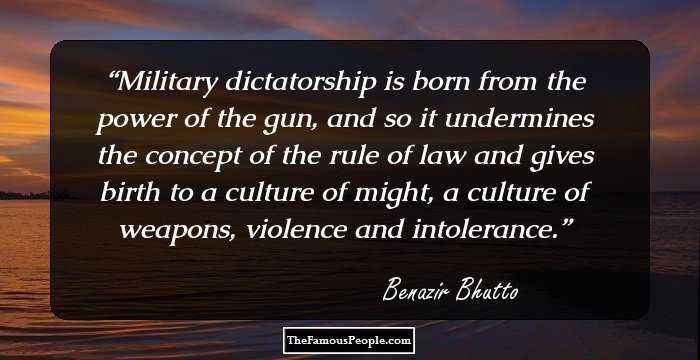
Military dictatorship is born from the power of the gun, and so it undermines the concept of the rule of law and gives birth to a culture of might, a culture of weapons, violence and intolerance.
Extremism can flourish only in an environment where basic governmental social responsibility for the welfare of the people is neglected. Political dictatorship and social hopelessness create the desperation that fuels religious extremism.
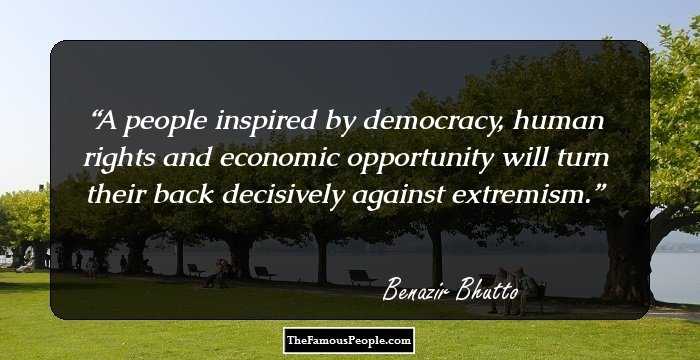
A people inspired by democracy, human rights and economic opportunity will turn their back decisively against extremism.
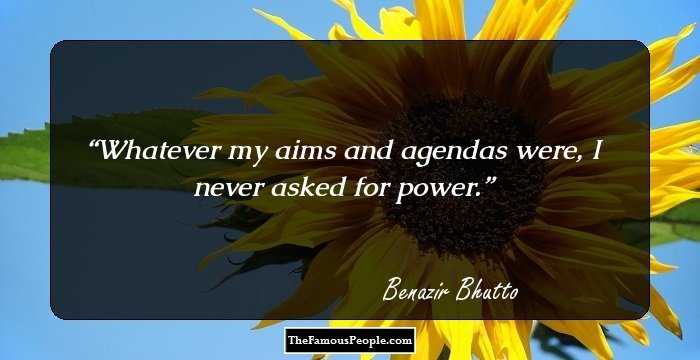
Whatever my aims and agendas were, I never asked for power.
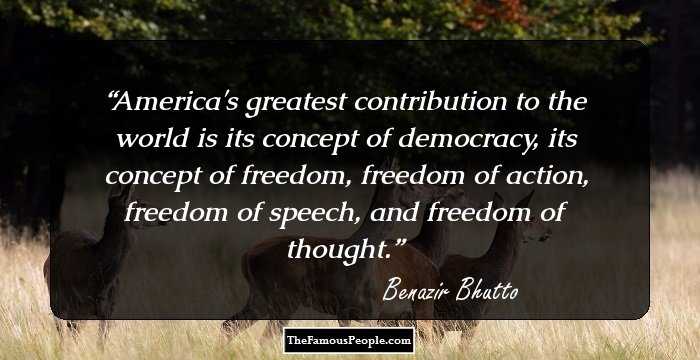
America's greatest contribution to the world is its concept of democracy, its concept of freedom, freedom of action, freedom of speech, and freedom of thought.
I have led an unusual life. I have buried a father killed at age 50 and two brothers killed in the prime of their lives. I raised my children as a single mother when my husband was arrested and held for eight years without a conviction - a hostage to my political career.
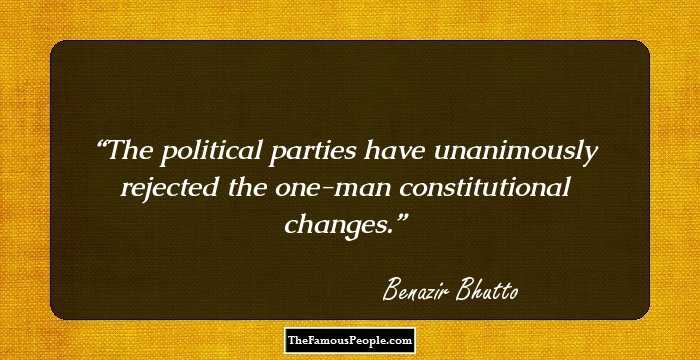
The political parties have unanimously rejected the one-man constitutional changes.
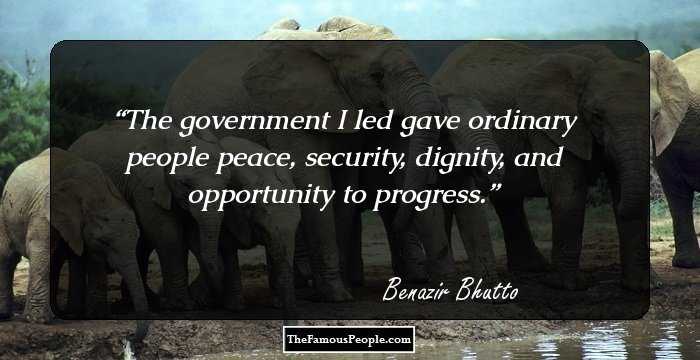
The government I led gave ordinary people peace, security, dignity, and opportunity to progress.
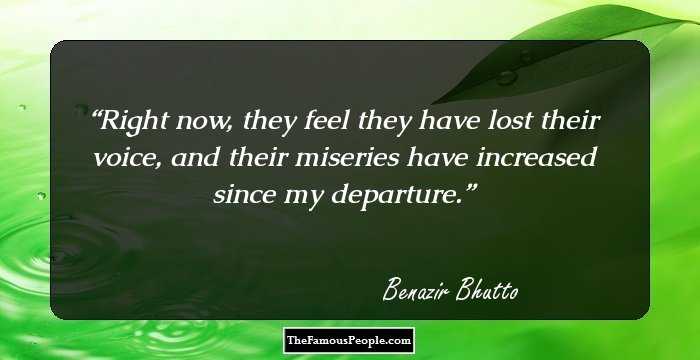
Right now, they feel they have lost their voice, and their miseries have increased since my departure.
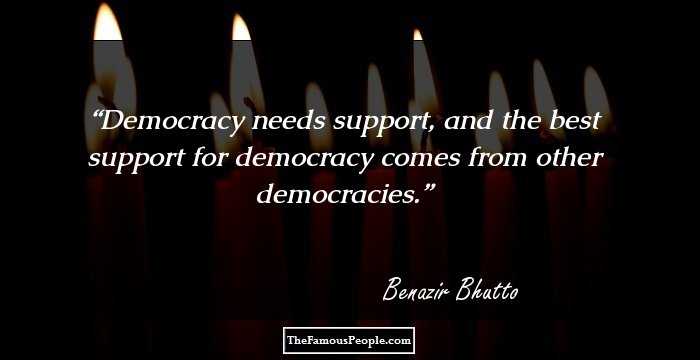
Democracy needs support, and the best support for democracy comes from other democracies.
Pakistan is heir to an intellectual tradition of which the illustrious exponent was the poet and philosopher Mohammad Iqbal. He saw the future course for Islamic societies in a synthesis between adherence to the faith and adjustment to the modern age.
I found that a whole series of people opposed me simply on the grounds that I was a woman. The clerics took to the mosque saying that Pakistan had thrown itself outside the Muslim world and the Muslim umar by voting for a woman, that a woman had usurped a man's place in the Islamic society.
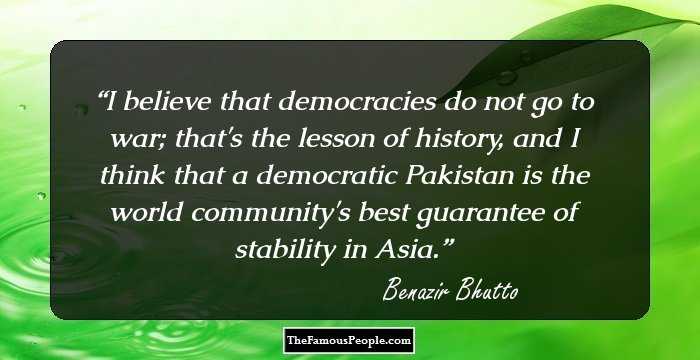
I believe that democracies do not go to war; that's the lesson of history, and I think that a democratic Pakistan is the world community's best guarantee of stability in Asia.
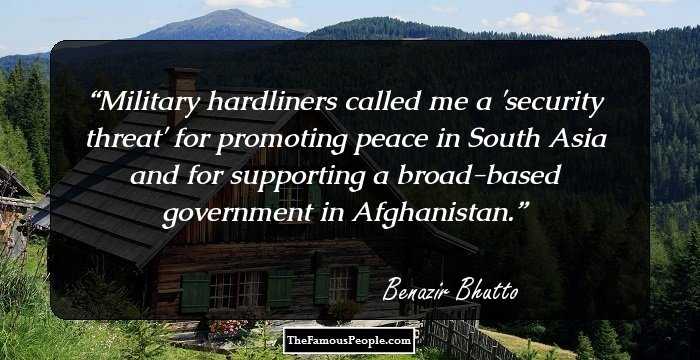
Military hardliners called me a 'security threat' for promoting peace in South Asia and for supporting a broad-based government in Afghanistan.
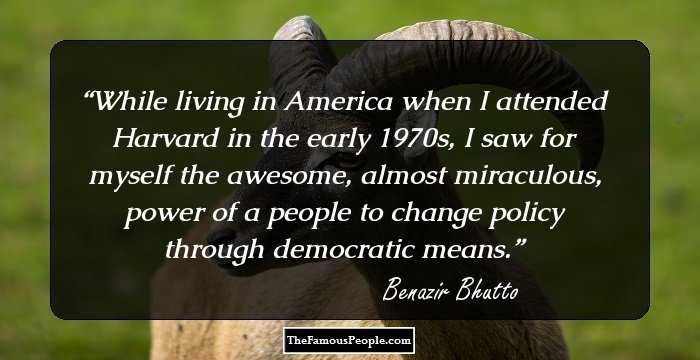
While living in America when I attended Harvard in the early 1970s, I saw for myself the awesome, almost miraculous, power of a people to change policy through democratic means.
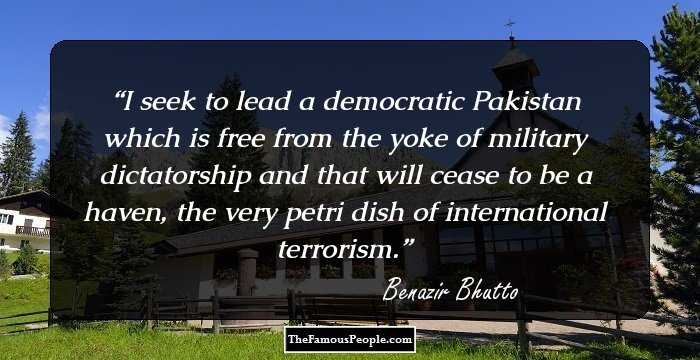
I seek to lead a democratic Pakistan which is free from the yoke of military dictatorship and that will cease to be a haven, the very petri dish of international terrorism.
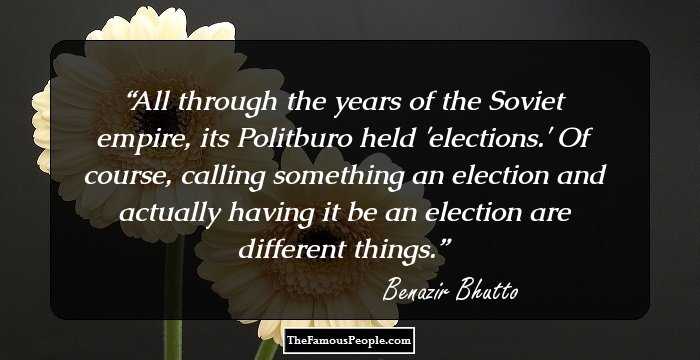
All through the years of the Soviet empire, its Politburo held 'elections.' Of course, calling something an election and actually having it be an election are different things.
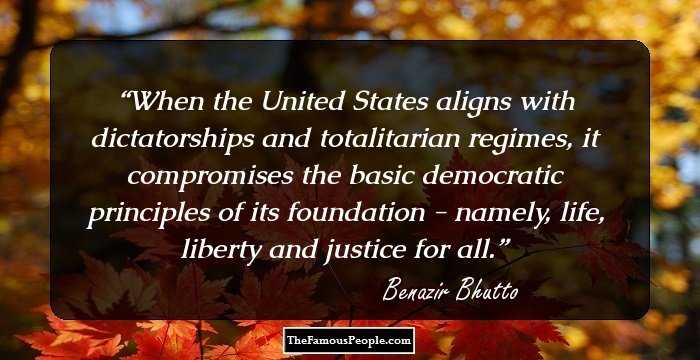
When the United States aligns with dictatorships and totalitarian regimes, it compromises the basic democratic principles of its foundation - namely, life, liberty and justice for all.
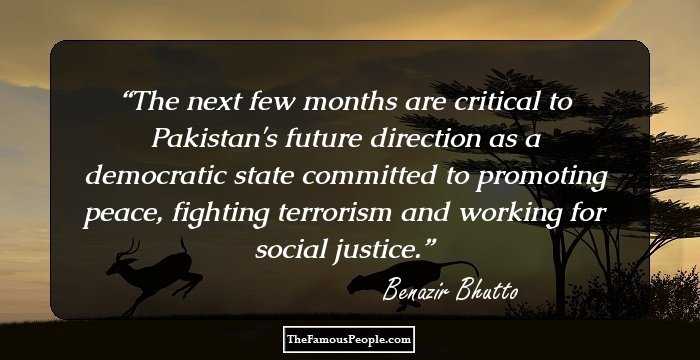
The next few months are critical to Pakistan's future direction as a democratic state committed to promoting peace, fighting terrorism and working for social justice.
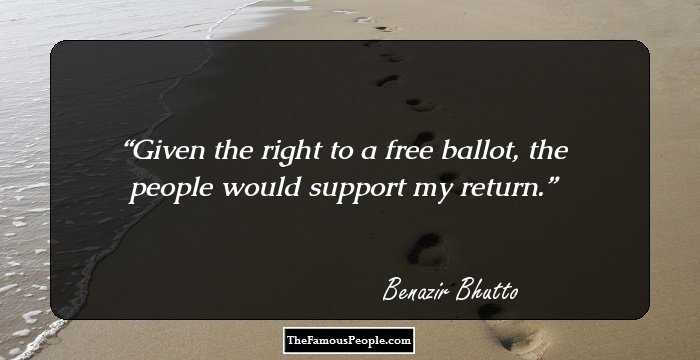
Given the right to a free ballot, the people would support my return.
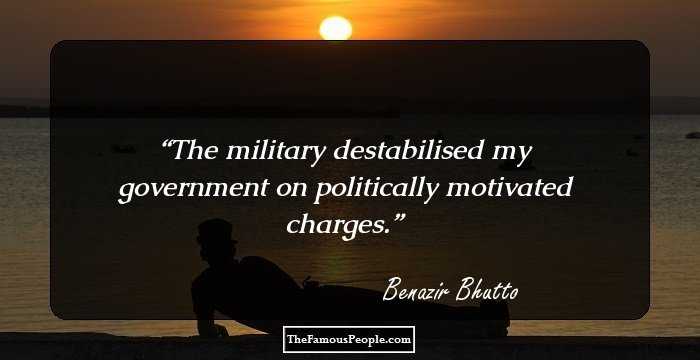
The military destabilised my government on politically motivated charges.
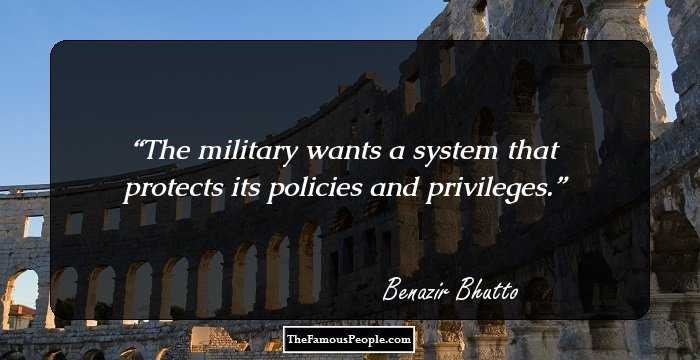
The military wants a system that protects its policies and privileges.
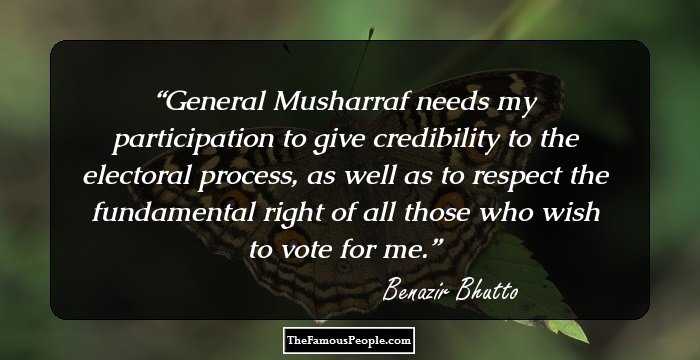
General Musharraf needs my participation to give credibility to the electoral process, as well as to respect the fundamental right of all those who wish to vote for me.
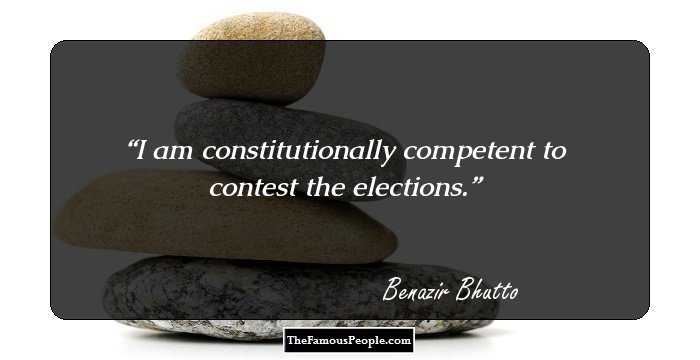
I am constitutionally competent to contest the elections.

